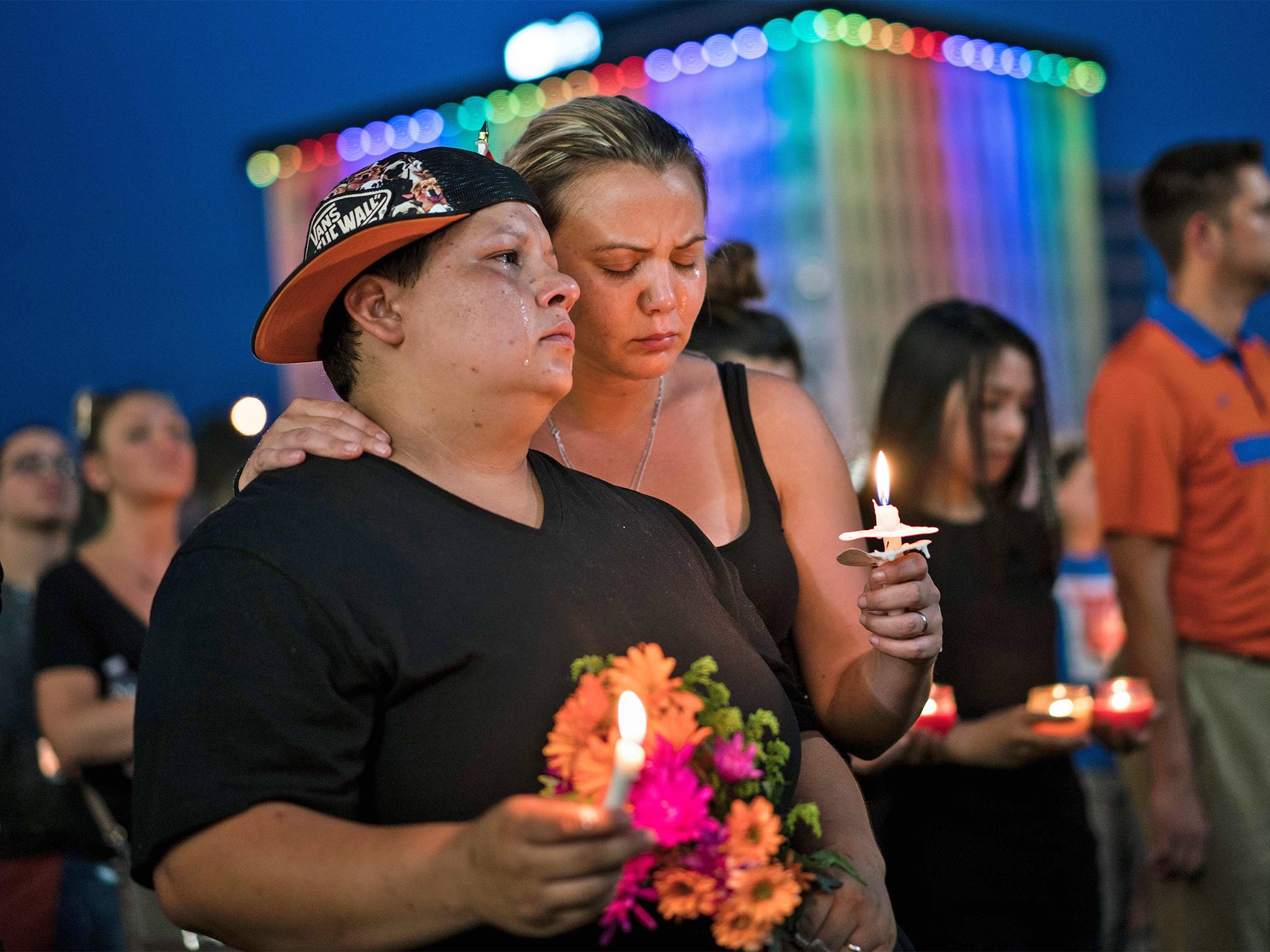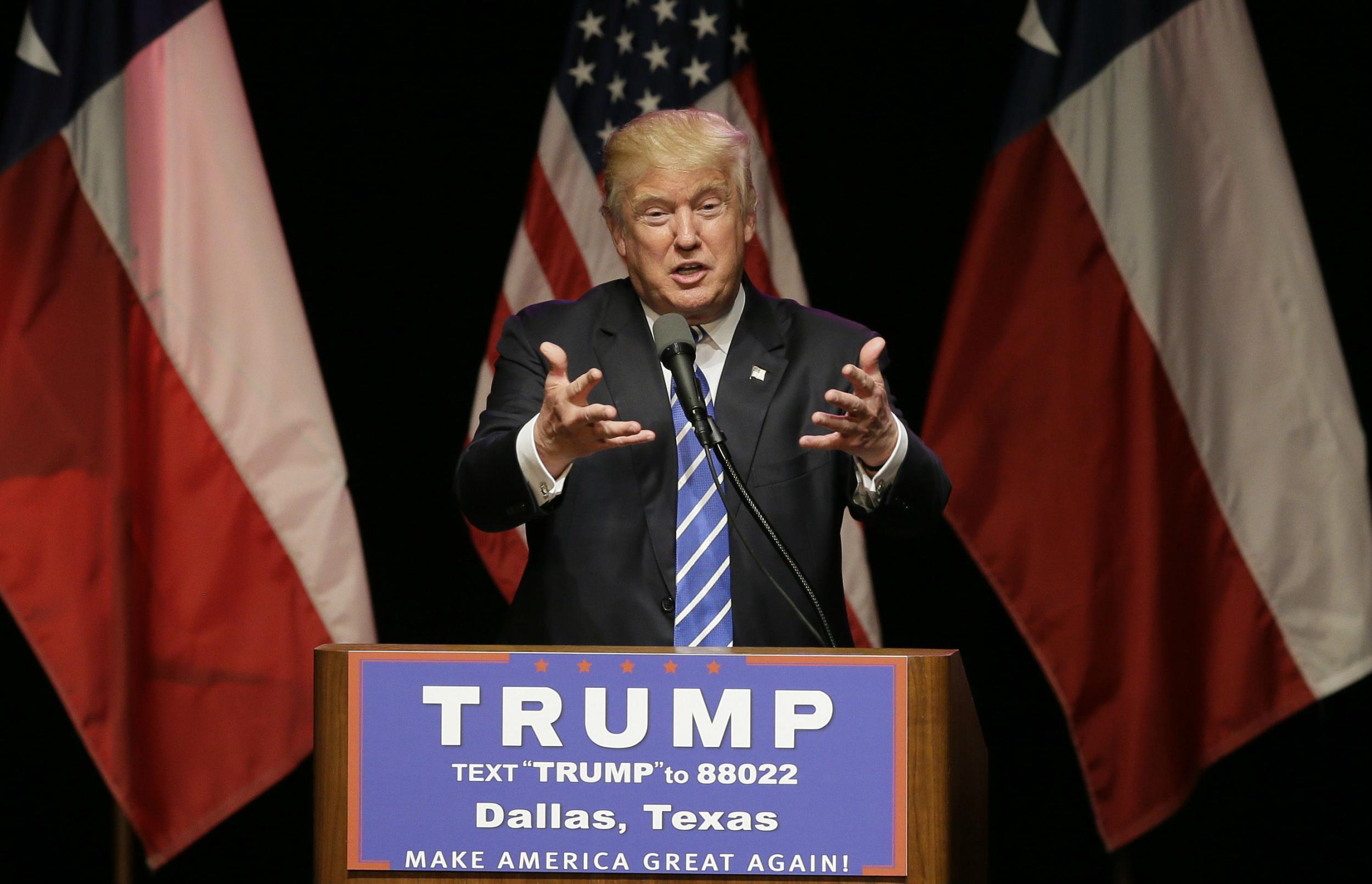Donald Trump says US should consider profiling Muslims
The presumptive Republican candidate was speaking a week after the attack that left 49 people dead in Orlando

Your support helps us to tell the story
From reproductive rights to climate change to Big Tech, The Independent is on the ground when the story is developing. Whether it's investigating the financials of Elon Musk's pro-Trump PAC or producing our latest documentary, 'The A Word', which shines a light on the American women fighting for reproductive rights, we know how important it is to parse out the facts from the messaging.
At such a critical moment in US history, we need reporters on the ground. Your donation allows us to keep sending journalists to speak to both sides of the story.
The Independent is trusted by Americans across the entire political spectrum. And unlike many other quality news outlets, we choose not to lock Americans out of our reporting and analysis with paywalls. We believe quality journalism should be available to everyone, paid for by those who can afford it.
Your support makes all the difference.Donald Trump has responded to the Orlando massacre by suggesting it would be “common sense” for the US authorities to start profiling Muslims.
Speaking a week after the attack that left 49 people dead and injured 40 others, the presumptive Republican presidential nominee doubled down on his previously stated demand that the US should suspend the entry of Muslims to the country.
On Sunday, he took that further, saying that while he hated the concept of profiling a section of society, it was something that could not be avoided.

“Well, I think profiling is something that we're going to have to start thinking about as a country,” he told CBS.
“And other countries do it; you look at Israel and you look at others and they do it and they do it successfully. You know, I hate the concept of profiling. But we have to start using common sense.”
Mr Trump’s comments in the aftermath of the shooting, carried out by a Muslim security guard, Omar Mateen, have further distanced him from the Republican establishment, which is concerned that his controversial comments will damage the party in the elections this autumn. Polls have shown the Democrats likely candidate, Hillary Clinton, extending a lead over the New York tycoon.
There have been appeals from the party to the nominee to tone down his rhetoric but Mr Trump has responded by saying that Republicans who don’t agree with him should keep quiet.

African-Americans and Hispanics have long protested police profiling that ranges from traffic stops to questioning about alleged crimes.
On Sunday, Mr Trump also said the government should investigate mosques in the US in much the same way the New York Police Department's Demographics Unit spied on Muslims and mosques around the city with help from the CIA.
The Associated Press said the group assembled databases on where Muslims lived, shopped, worked and prayed, infiltrated Muslim student groups, put informants in mosques and monitored sermons.
In January, the city settled two lawsuits stemming from such surveillance. Yet Mr Trump believed it was be something that could be returned to.
“You do [it] as they used to do in New York prior to this mayor dismantling,” Mr Trump said.
The AP said Americans were divided over whether or not to single out Muslim communities as part of a plan to fight terrorism, according to an AP-GfK poll conducted March 31 through April 4.
Forty-nine percent of respondents said they favoured surveillance programmes aimed at predominantly Muslim communities in the United States to obtain information about possible radicalisation. Forty-seven per cent of those surveyed opposed the practice.
Civil libertarians, Muslims and others have strongly opposed the idea of profiling, arguing that it is unconstitutional and discriminates based on race, religion and other factors.
Attorney General Loretta Lynch on Sunday said law enforcement should remain allied with groups that might have helpful information.
“It is very important for to us maintain our contacts within the Muslim community, because, often, individuals, if they’re from that community and they’re being radicalised, their friends and family members will see it first,” she told CNN.
“They will see activity first. And we want that information to come to us.”
Join our commenting forum
Join thought-provoking conversations, follow other Independent readers and see their replies
Comments